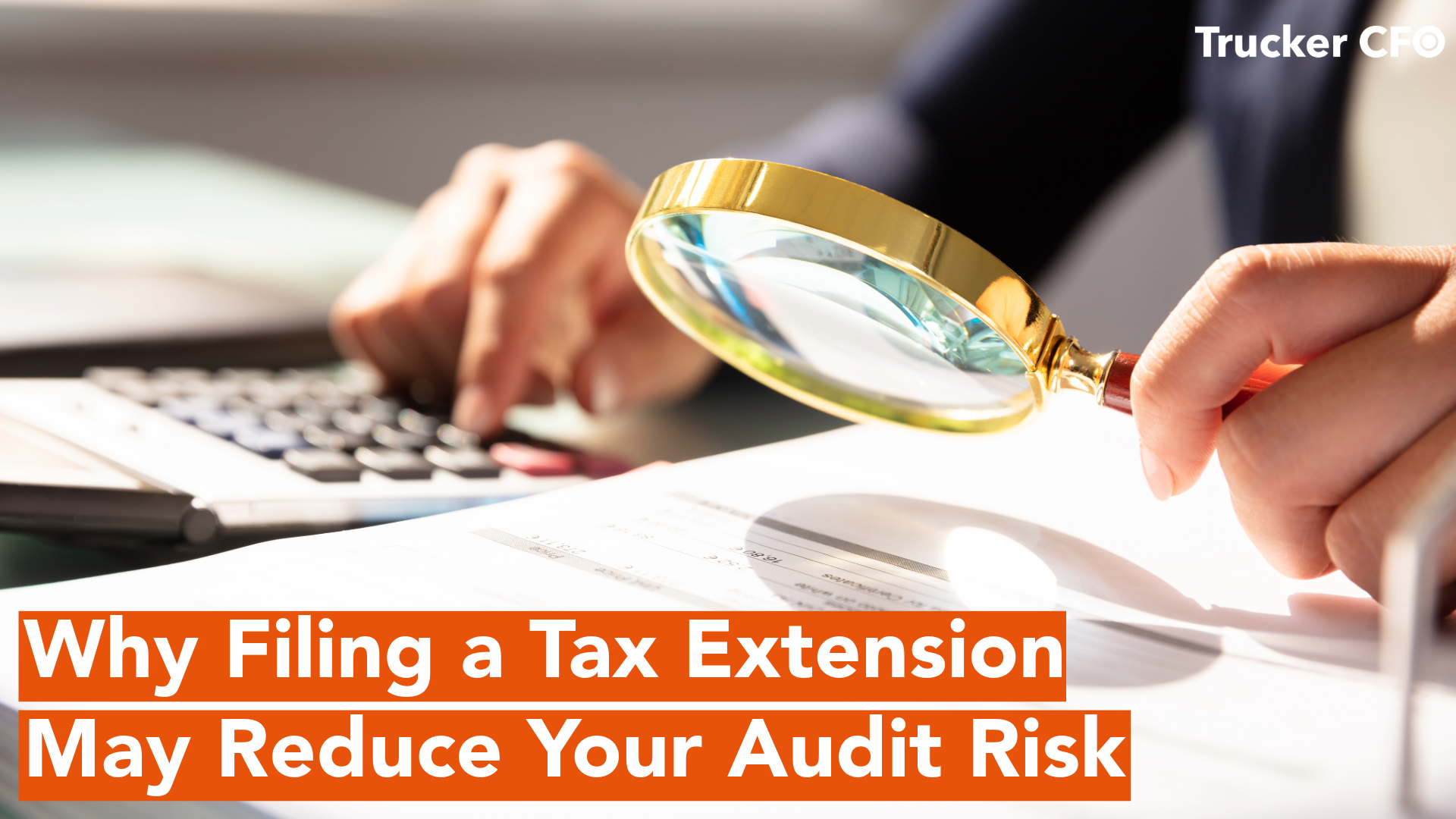
Many people worry that filing a tax extension makes them more likely to be audited. But in reality, extensions can actually help you avoid IRS scrutiny, especially if you’re in a complex tax situation or waiting on key documents.
At Trucker CFO, we believe in filing smarter, not just faster. For many trucking professionals, that means taking extra time to file accurately, completely, and confidently.
What Is a Tax Extension?
A tax extension gives you more time to file your return, not to pay your taxes. For individuals, it moves the deadline from mid-April to mid-October. However, any taxes owed are still due in April to avoid penalties and interest.
Filing for an extension is easy. For individuals, submitting IRS Form 4868 by the original deadline automatically grants the extension.
Does Filing an Extension Increase Your Audit Risk?
No — and in many cases, it may reduce your chances of an audit.
Here’s why:
- Better accuracy: You have more time to check for errors, gather late documents, and complete your return thoroughly.
- Less rush = fewer mistakes: Many returns filed close to the original deadline are rushed and contain errors, which can raise audit flags.
- Wider data pool: Returns filed later are reviewed against a broader IRS dataset, making unusual deductions or income patterns less likely to stand out.
According to tax professionals and IRS guidance, what matters most is what’s on your return — not when you file it.
Common Reasons Truckers File Tax Extensions
Truckers often have variable income, complicated deductions, and late-arriving tax forms. These are all good reasons to file an extension:
- You’re waiting on 1099s, K-1s, or settlement statements.
- You recently started or closed a business.
- You had major life changes — new state, new marriage, new kid.
- You need time to organize receipts, depreciation records, or per diem logs.
- You’re switching accountants or updating your business structure.
An extension gives you time to sort through these issues without risking a rushed or inaccurate return.
Audit Triggers: It’s What You File, Not When
The IRS selects most audits through computer screening that flags inconsistencies, missing income, or outlier deductions.
Common audit triggers include:
- High income
- Large deductions that don’t match income level
- Mismatched 1099s or W-2s
- Prior audit history
- Math errors or incomplete forms
Filing late with an extension does not increase the likelihood of an audit. If anything, the extra time lets you reduce these red flags by submitting a cleaner, more complete return.
Best Practices for Filing with an Extension
To take full advantage of a tax extension:
1. Estimate and pay by April 15
Even if you’re filing later, try to pay at least 90% of what you owe by the April deadline. This helps avoid penalties and interest.
2. Use the extra time wisely
Double-check your return for accuracy. Match every line item to a document. Review deductions, credits, and mileage logs.
3. Keep good records
If you’re extending due to missing forms or life events, jot down the reasons and keep supporting documentation (emails, receipts, etc.) in case questions arise later.
4. Work with a tax pro
If your taxes are complex — and most truckers’ returns are — filing with professional guidance helps prevent mistakes that could lead to audits or penalties.
When Not to Rely on an Extension
While extensions are helpful, there are a few drawbacks to keep in mind:
- Refund delays: If you’re expecting a refund, filing late means waiting longer to receive it.
- Missed deadlines: Putting things off can lead to missed paperwork, disorganization, or last-minute stress.
- Payment penalties: Remember, the extension only delays the paperwork — not the payment.
If you don’t actually need the extra time, it may be best to file early and move on.
Conclusion: Filing Later Can Be Smarter — Not Riskier
At Trucker CFO, we use tax extensions strategically. We don’t delay for the sake of it — we extend returns to ensure they’re accurate, compliant, and filed in your best interest.
Whether you’re an independent driver or a small fleet owner, filing an extension may help you reduce audit risk, improve accuracy, and avoid unnecessary stress.
If you’re unsure whether filing an extension is right for you, get in touch. We help truckers file with confidence — and we’re here to guide you through every step of the process.
